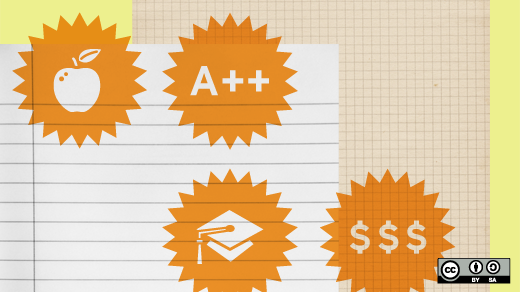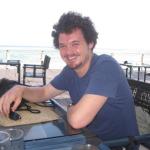In 2013, our non-profit organization called Tunapanda (a Swahili word that means "we are growing" or "we are planting") launched a project to create and share "an education on a hard drive."
The ultimate goal was to bring low-income communities to technological literacy in the most rapid and cost-efficient way possible. Initially, we loaded the hard drive with tons of educational content and FOSS software, intending to allow anyone anywhere to duplicate the contents and set up a learning center. Using these tools, we've launched computer learning centers ("hubs") in Kenya, Tanzania, and Uganda—in both rural and urban settings.
Because of what we've learned since last year, and the positive feedback we've received from partners and students, we've significantly expanded our scope to focus on cutting-edge technologies and to emphasize self-expression, creativity, and story-telling. We use almost exclusively open source software and try to maintain an open source organizational mindset.
What we learned
Unsurprisingly, we found that dumping content onto a server isn't the most effective way to encourage fast learning. And although Tunapanda just opened its own facility in Nairobi to train teachers, we still need another method of guiding students through different learning paths and incentivizing them to complete their educational goals. One of our ongoing projects aims to structure learning paths around a game-like environment so students can earn points and badges, and so they can follow their progress. This allows learners to progress at their own speed in a non-linear curriculum, allowing interests and passions (rather than standards set by a teacher) to influence the next learning module. The platform will be completely open source and customizable, allowing anyone to adapt it to the needs of themselves or their school.
Although neither of the co-founders are software experts, we work with a team of talented volunteers that help us improve our system. Tunapanda already has a customized version of Edubuntu that includes extra programs conducive to its overall goals, and are developing a way to measure and evaluate the most effective processes.
Creativity and self-expression
Most computer training in Kenya revolves around the teaching of software-specific "packages," in which students finish the course having earned a certificate that will show their proficiency in, for example, Microsoft Office. Tunapanda focuses instead on a more holistic method of training in which learners can eventually gain enough experience to sit down in front of any software and be comfortable enough to learn through experimentation.
Furthermore, we believe the development of creative talents is essential for learners. Many traditional education systems are designed to allow students to pass tests, and don't emphasize teamwork, creativity, critical thinking or problem solving. Tunapanda incorporates self-expression as a key facet of the learners' curriculum, aiming to increase creativity and push students to actually create knowledge and strive for innovation.
Locally created content
A plethora of great video learning content is available online, but even if learners are able to afford data costs associated with accessing this content, most of it caters to a Western audience. While video learning technologies such as MOOCS and the Khan Academy are great, they aren't always ideal for the region. Language barriers and cultural differences mean that the best way to spread content is with locally created content. As Tunapanda students are learning how to create and edit videos, they will also be working with local partners to create Creative Commons licensed educational videos that can be put on DVDs or downloaded from the Internet, as well as stored on local servers at our hubs across the region. Eventually these servers can act as digital libraries, making free educational content available to passers-by. They can even spread further through decentralized mesh networks.
3D printing
One of our partners, the Human Needs Project, won a Gigabot large-format 3D printer, and we are currently developing a 3D printing educational curriculum. We're also brainstorming ideas for how to use the printer for social impact. Current ideas include custom water piping (likely still prohibitively expensive) and repairing broken parts of medical equipment. By allowing the wider community to see this cutting edge technology in action and propose design ideas, the 3D printer can also excite people about new technologies, inspiring them to learn computer skills and change our world for the better.
Why open source?
One practical reason for open source software is that it allows Tunapanda's model to spread in low-income areas without forcing people in those areas to become "criminals" by buying illegal software. More importantly, open source software and freely-licensed content are vital to instilling a widespread culture of collaboration and the sharing of ideas. The people all over this planet are a huge pool of untapped potential. We can accomplish great things when open source software and content become the norm rather than the exception.
How to help
In the long-term, Tunapanda Institute can be financially self-sustaining through revenue sharing with our partners, who charge small fees for delivering courses. But operations are currently crowd-funded from generous people all over the world. A contribution as small as $25 can put you forever on Tunapanda's Angel List page. The gift helps pay stipends for hard-working students who are learning to become content creators and masters of technology.
Anyone wishing to volunteer and contribute to our software or curriculum needs is invited to follow our GitHub page, browse our website, or contact the author to be kept more closely in the loop.







Comments are closed.